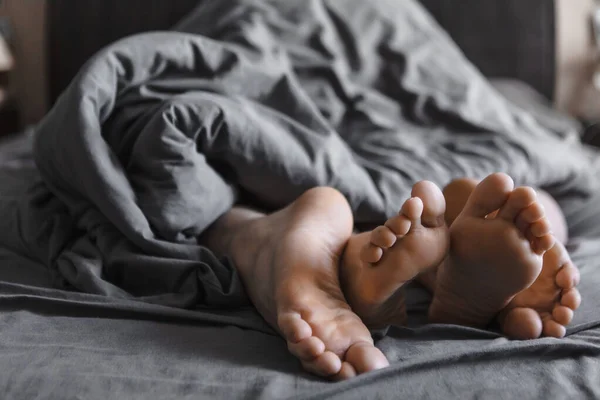Navigating POIS and Sexual Attraction: Understanding Changes in Intimacy
Post-Orgasmic Illness Syndrome (POIS) is known for its complex symptoms that affect both the body and mind after sexual activity. But how does POIS influence sexual attraction and desire? This post explores how the symptoms of POIS may impact an individual’s sexual attraction and intimacy. We’ll also examine the emotional, psychological, and physical factors involved, offering insights into how POIS sufferers can manage its potential effects on their romantic and sexual relationships.

Introduction: The Intersection of POIS and Sexual Attraction
Post-Orgasmic Illness Syndrome (POIS) is a condition that affects individuals after orgasm, leading to a variety of physical, emotional, and cognitive symptoms. While much of the focus on POIS revolves around the intense physical discomfort and mental fatigue experienced by those with the condition, there’s another question that often arises: Does POIS impact sexual attraction?
Sexual attraction is a complex and multifaceted aspect of human relationships. It can be influenced by many factors, including physical health, emotional connection, mental well-being, and external stressors. For those living with POIS, the condition’s debilitating symptoms can alter how they experience attraction, intimacy, and sexual desire. This post explores how POIS may affect sexual attraction and how individuals can navigate these changes while maintaining healthy and fulfilling relationships.
POIS and Its Impact on Physical Desire
One of the primary ways POIS may affect sexual attraction is through its impact on physical desire. The fatigue, muscle pain, and flu-like symptoms that often accompany POIS episodes can make it difficult for individuals to feel physically drawn to sexual activity. The body’s natural energy is often diverted to recovering from the symptoms of POIS, which can suppress libido and reduce the physical desire for intimacy.
Living with POIS means that physical desire can fluctuate significantly, depending on the severity of symptoms. For some individuals, the anticipation of experiencing another POIS episode after sexual activity may lead to anxiety or avoidance, which in turn reduces their desire for intimacy. It’s important to acknowledge this cycle, as both individuals and couples may need to reassess expectations for sexual engagement during symptom flare-ups.
The Psychological Toll of POIS on Sexual Attraction
In addition to physical discomfort, POIS can also take a psychological toll, which can impact sexual attraction. Dealing with chronic symptoms over time may lead to feelings of frustration, anxiety, and even depression. These emotional challenges can diminish interest in sexual activity and intimacy. POIS-related brain fog, mental exhaustion, and general low mood can make it difficult to engage in romantic relationships or feel sexually attracted to one’s partner.
Many POIS sufferers may also experience lowered self-esteem or self-consciousness due to their symptoms, making them reluctant to initiate or participate in sexual experiences. In some cases, this psychological strain can become a barrier to experiencing sexual attraction altogether. It’s crucial for individuals dealing with POIS to recognize the mental health component of the condition and consider seeking support if emotional issues begin to interfere with intimate relationships.
Changes in Emotional Connection and Intimacy
POIS doesn’t just affect physical and psychological aspects of sexual attraction; it can also impact emotional connection. Emotional intimacy often plays a large role in sexual attraction, and for individuals with POIS, chronic symptoms can disrupt this connection. The physical and mental fatigue associated with POIS may make it harder to be emotionally present in a relationship, potentially leading to emotional distance.
This emotional distance may contribute to a decline in sexual attraction, as attraction is often rooted in how emotionally connected individuals feel to their partners. The relationship between emotional intimacy and sexual desire is a delicate balance, and for couples dealing with POIS, maintaining this connection can become a challenge. However, with conscious effort, many couples can find ways to nurture their emotional bond despite the effects of POIS.
Coping Strategies: Navigating POIS and Sexual Attraction

While POIS may present difficulties in maintaining sexual attraction, there are ways to manage the condition and maintain a healthy and fulfilling relationship. Here are a few strategies to consider:
-
Open Communication: Discussing the effects of POIS with your partner can help them understand how the condition impacts your physical and emotional well-being. Honest communication can reduce feelings of isolation and frustration, and promote empathy within the relationship.
-
Prioritizing Non-Sexual Intimacy: When sexual activity is difficult, focusing on other forms of intimacy—such as holding hands, cuddling, or spending quality time together—can strengthen emotional bonds. These small acts of closeness can help maintain a sense of connection, even if physical intimacy is temporarily off the table.
-
Managing Expectations: It’s important for both partners to manage expectations regarding physical desire and sexual attraction. Understanding that POIS may cause temporary fluctuations in libido can ease pressure and foster patience and compassion within the relationship.
-
Seeking Professional Support: Therapy, whether individual or couples counseling, can provide a safe space to explore the emotional and relational challenges posed by POIS. A therapist can offer strategies to cope with POIS-related anxiety, improve communication, and help couples navigate the complexities of sexual attraction and intimacy.
POIS may influence sexual attraction in various ways, but with patience, communication, and a focus on emotional connection, individuals and couples can maintain fulfilling and meaningful relationships.
Conclusion
The relationship between POIS and sexual attraction is complex, influenced by the condition’s physical, emotional, and psychological effects. While POIS can pose challenges to physical desire, emotional connection, and intimacy, it’s important to remember that these impacts don’t define the entirety of one’s relationships or sense of self. By acknowledging these changes, openly communicating with partners, and exploring alternative forms of intimacy, individuals can navigate the effects of POIS while preserving a healthy and fulfilling connection. Each person’s experience with POIS is unique, but with the right coping strategies, it is possible to balance the challenges of the condition with meaningful, loving relationships.
